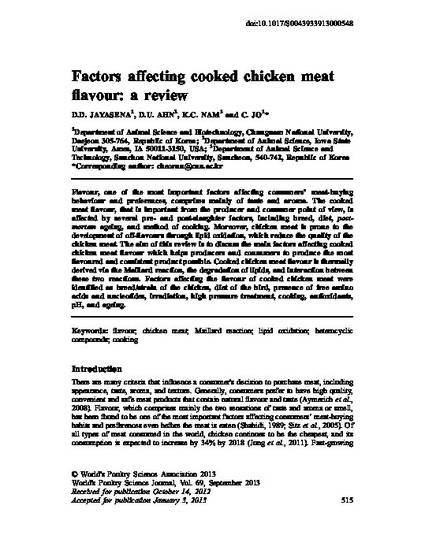
Flavour, one of the most important factors affecting consumers’ meat-buying behaviour and preferences, comprises mainly of taste and aroma. The cooked meat flavour, that is important from the producer and consumer point of view, is affected by several pre- and post-slaughter factors, including breed, diet, post-mortem ageing, and method of cooking. Moreover, chicken meat is prone to the development of off-flavours through lipid oxidation, which reduce the quality of the chicken meat. The aim of this review is to discuss the main factors affecting cooked chicken meat flavour which helps producers and consumers to produce the most flavoured and consistent product possible. Cooked chicken meat flavour is thermally derived via the Maillard reaction, the degradation of lipids, and interaction between these two reactions. Factors affecting the flavour of cooked chicken meat were identified as breed/strain of the chicken, diet of the bird, presence of free amino acids and nucleotides, irradiation, high pressure treatment, cooking, antioxidants, pH, and ageing.
Available at: http://works.bepress.com/dong_ahn/84/

This is an article from World's Poultry Science Journal 69 (2013): 515, doi:10.1017/S0043933913000548. Posted with permission.